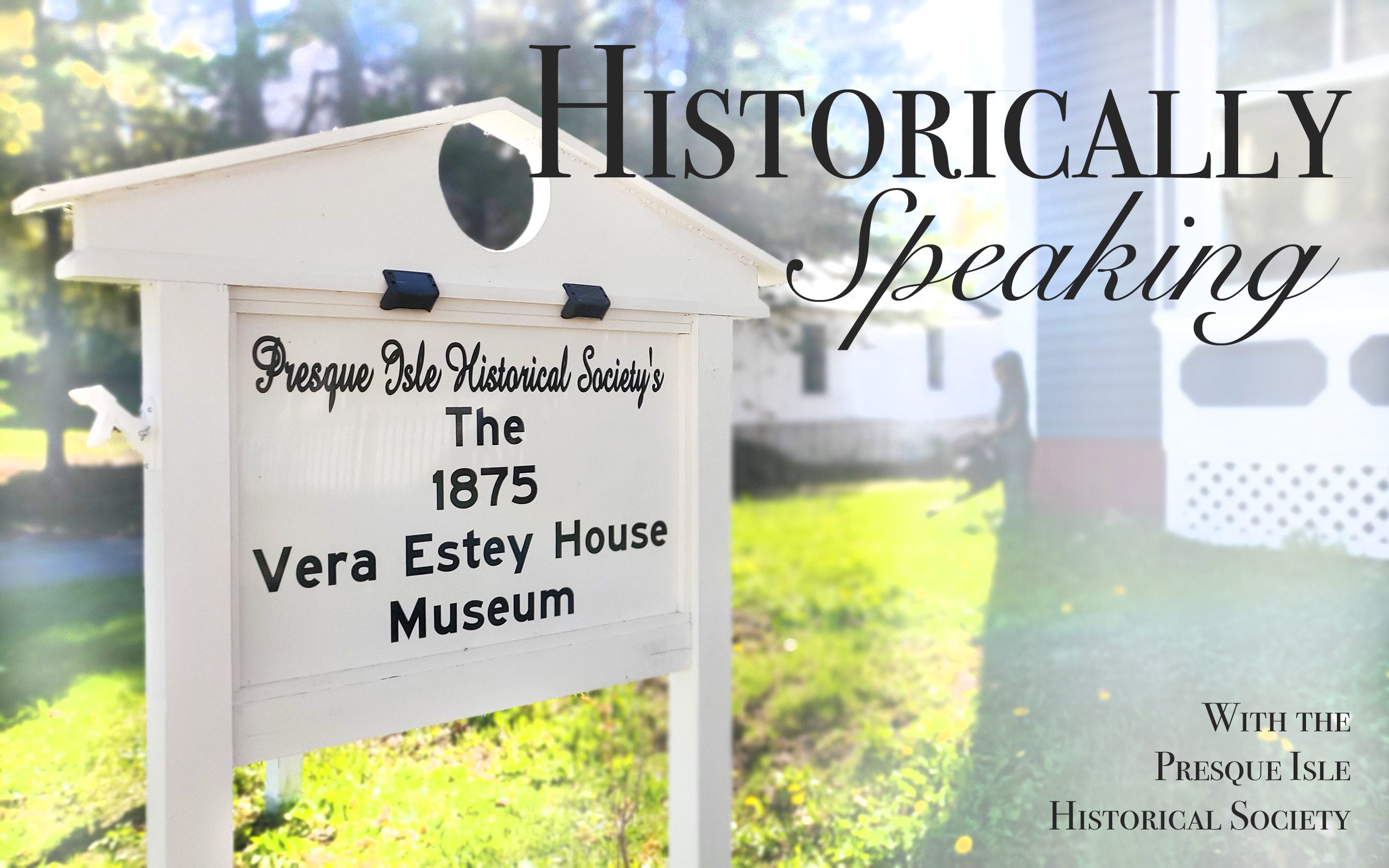In celebration of American Business Women’s Day on Sept. 22, Presque Isle Historical Society takes a look back at some of the unusual groundbreaking women from the community’s past.
It has not always been easy for women to be in business in Maine. As of 1821, married women in Maine were allowed to operate and manage property while their husbands were incapacitated. In 1840, a married woman in Maine could own but not control property in her own name. The year 1844 saw married women able to obtain a trade license in Maine. Married women were then granted the right to control their own earnings in Maine by 1857.
Three enterprising local women immediately come to mind: Mary Oak, Vera Estey, and Alice Kimball.
Mary Oak, born in 1891, was the daughter of James Oak. James was a lumberman and was the largest shipper of railroad ties and telegraph poles in Aroostook County. His shop stood on what is today Oak Street. Her mother passed away when Mary was only 3, leaving a total of seven children behind.
At an early age, Mary apprenticed with a photographer and opened her own studio in the Bolton Block on the corner of State and Main streets in 1912. The studio, as well as all of the Bolton Block, burned down in 1935. Mary traveled to Florida by car with one of her sisters who was disabled and, during her travels, became fascinated with the motor lodges along way, deciding to open one of her own in Presque Isle. Mary realized this dream with the building of the Oak Hotel and Apartments.
She passed away in January of 1962 and her hotel burned to the ground on April 12, 1975, under mysterious circumstances.
Vera Estey was born in 1894 and moved to the United States from Canada in the early 1900s. Her parents purchased 16 Third Street in 1916 and Vera lived in this house until 1986, and then spent her last eight years in a nursing home.
Vera’s father, John, was a member of the local men’s sporting club, the Mooseleuk Club, which was responsible for bringing Presque Isle’s beloved harness horse, John R. Braden, to town.
Vera’s business was raising and selling flowers, mostly tulips, to the Boston Fresh Flower Market. Today, Vera’s home is operated by the society as a Victorian house museum.
Alice Kimball perhaps has the best local pedigree, if you will. She was the step-granddaughter of George Parsons (namesake of Parsons Street). George was a member of the self-proclaimed “Pioneer Club” of Presque Isle, so named to indicate the members were the last remaining pioneers of this area.
According to the National Register of Historic Places, George was a civil engineer and built a large barn on his Elmbrook Farm that was, at one time, listed on the National Register. He was a secretary of the Northern Maine Fair, built the first cheese factory in Presque Isle, and was instrumental in the building of the first Unitarian Church here as well as in our public library.
Alice was well traveled and well educated having graduated from LaSalle College, Columbia University and the Boston Conservatory of Music. Upon returning home to Presque Isle in 1914, Alice gave voice lessons. The 1959 National Christmas Tree came from the Elmbrook Farm, which she had inherited.
As an interesting side note, none of these three women married or had children.
Kimberly R. Smith is the secretary/treasurer of the Presque Isle Historical Society.





